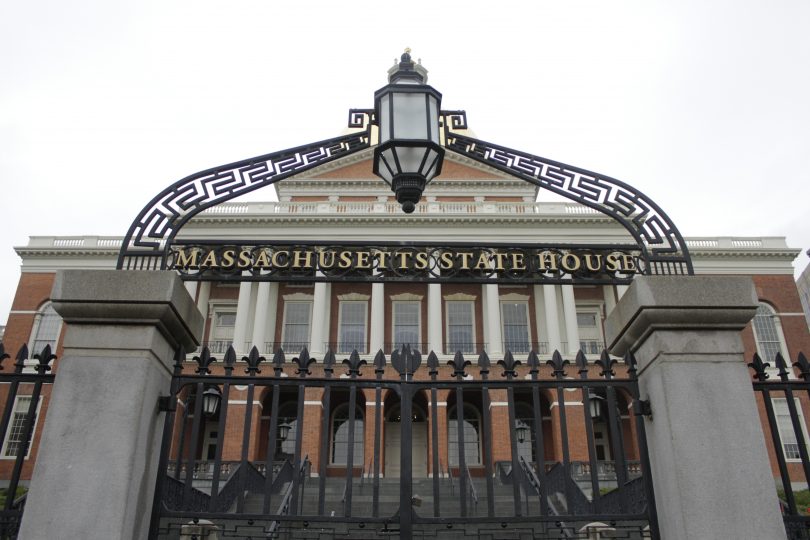By Aryan Rai
Boston University Statehouse Program
Daniel Lamontagne, 61, kept his auto body business in Williamsburg afloat for 30 years and six months before he was forced to shut it down last September. In its last two functioning years, Lamontagne was the sole employee at White Lightning Auto Body. The primary reason for closure, he said, was that he could not work 50 to 60 hours alone and run the shop. The supply chain issues caused by COVID-19 only exacerbated the situation.
Like Lamontagne, many struggling auto body shop owners across Massachusetts are pushing to get what they say is long overdue: fair reimbursements by insurance companies. They say the rates are outdated and disconnected from the current inflation surge.
“The pay scale for people coming into the trade just isn’t there,” said Lamontagne. “That’s another thing, they (insurance companies) either reimburse you for the cost of work, without paying the profit, or sometimes they pay less than the cost. It is ruthless.”
The average reimbursement rate in Massachusetts is around $40 per hour – the lowest in the country. Neighboring states pay an average rate of 50-$60 that has been adjusted to the market and has consistently increased over the years.
Shop owners attributed the problem to the lack of a rate-setting mechanism that allows insurance companies to adopt what is called a “referral system.” Under this system, shops can sign a contract with an insurance company to work under the non-negotiable rates, and in return, the insurance companies funnel their clients towards these shops.
Although this means working for low reimbursement, shop owners are hesitant to get out of contracts. Going independent would mean losing the referrals from insurers while asking for a suitably higher price will just push the consumer to another shop functioning under these low-rate contracts.
“They (insurance companies) will tell you it’s a market rate but it’s not. They are simply suppressing the rates using this system,” said Matthew Ciaschini, co-owner of Full Tilt Auto Body & Collisions in West Hatfield.
The system was first adopted in 1988 with a rate of $30 per hour. Thirty-four years later, that has gone up by approximately $10. Shop owners say that rate is insufficient to pay employees and buy parts in the post-COVID economy. Turning profits is almost too ambitious.
Ray Belsito, the owner of Arnie’s Autobody in Charlton, noted that Massachusetts chooses not to follow suit in how other states set a price — by using labor aid surveys. These involve insurance companies contacting unaffiliated shops and getting an estimation about the current market rate. Based on that, the insurers also increase their labor rates.
“Labor aid surveys are very important things that we do not have in Mass.,” said Belsito, who is also a former insurance company employee. “Without it, there is no mechanism for the rates to grow. This situation is unique to our state.
It is now a growing consensus amongst the shop owners that these near-stagnant rates and a restrictive system will lead to the inevitable collapse of the auto body industry. Their worries are not unfounded.
“There are shops that have closed partly due to COVID, but they would have been in jeopardy even without COVID,” said Evangelos Papageorg, executive director at Alliance of Automotive Service Providers of Massachusetts. “This is based on the fact that there is a huge void when it comes to technicians in the industry.”Support the Daily Hampshire Gazette. Subscribe Today
That’s because the industry lacks a strong incentive to attract young technicians while also struggling to retain valued employees.
A 2022 report by National Autobody Research highlighted a shortage of skilled technicians with the national demand for technicians outpacing the supply by nearly five-to-one. This translates into a requirement of 100,000 technicians in the next five years to keep the industry active. The report concluded that “a significant price adjustment is needed now.”
Legislation in works
A House bill offers hope.
The measure aims to set a minimum reimbursement rate by adjusting the 1988 rate to inflation. According to estimates, this would change the current average reimbursement rate of $40 per hour to something in the vicinity of $68.
The deadline to issue a report on the bill was extended. The first round of testimony was heard by the Special Commission on Auto Body Labor Rates last month.
“The extension is a good sign, but I am just cautiously optimistic,” said Guy Glodis, a former state senator who is now lobbying for the bill. Glodis was in the office in the early 2000s when the issue of low reimbursement rates was acknowledged.
“The leadership at the time assured me that they would be addressing the issue. That a labor rate increase was long overdue,” said Glodis. “That was 20 years ago.”
Rep. James Hawkins, D-Attleboro, who is the sponsor, recalled running an auto body shop in Rhode Island 20 years ago. He agreed that the loss of these shops will influence public safety as the number of unsafe cars and duration to fix them will eventually increase.
“Auto body work is no longer a side job for people like it was some time ago. It is expensive to run this business, especially now with such technical vehicles,” said Rep. Hawkins. “This is a big problem.”
The date for the second round of testimony is yet to be decided. The deadline for releasing a report on the bill is now June 30.
This article originally appeared in The Daily Hampshire Gazette.





